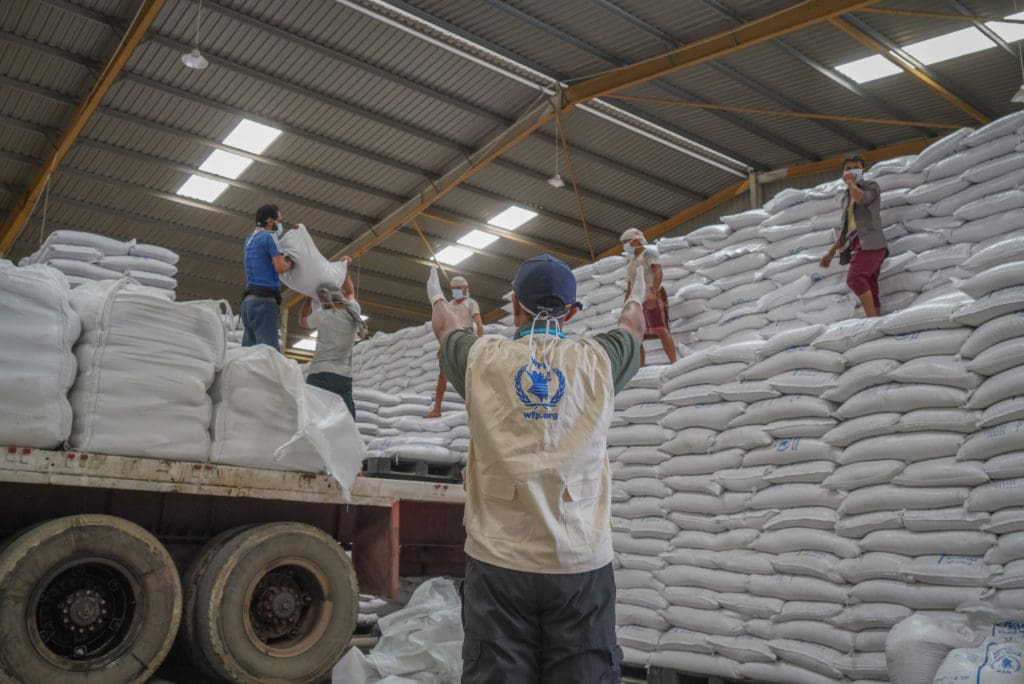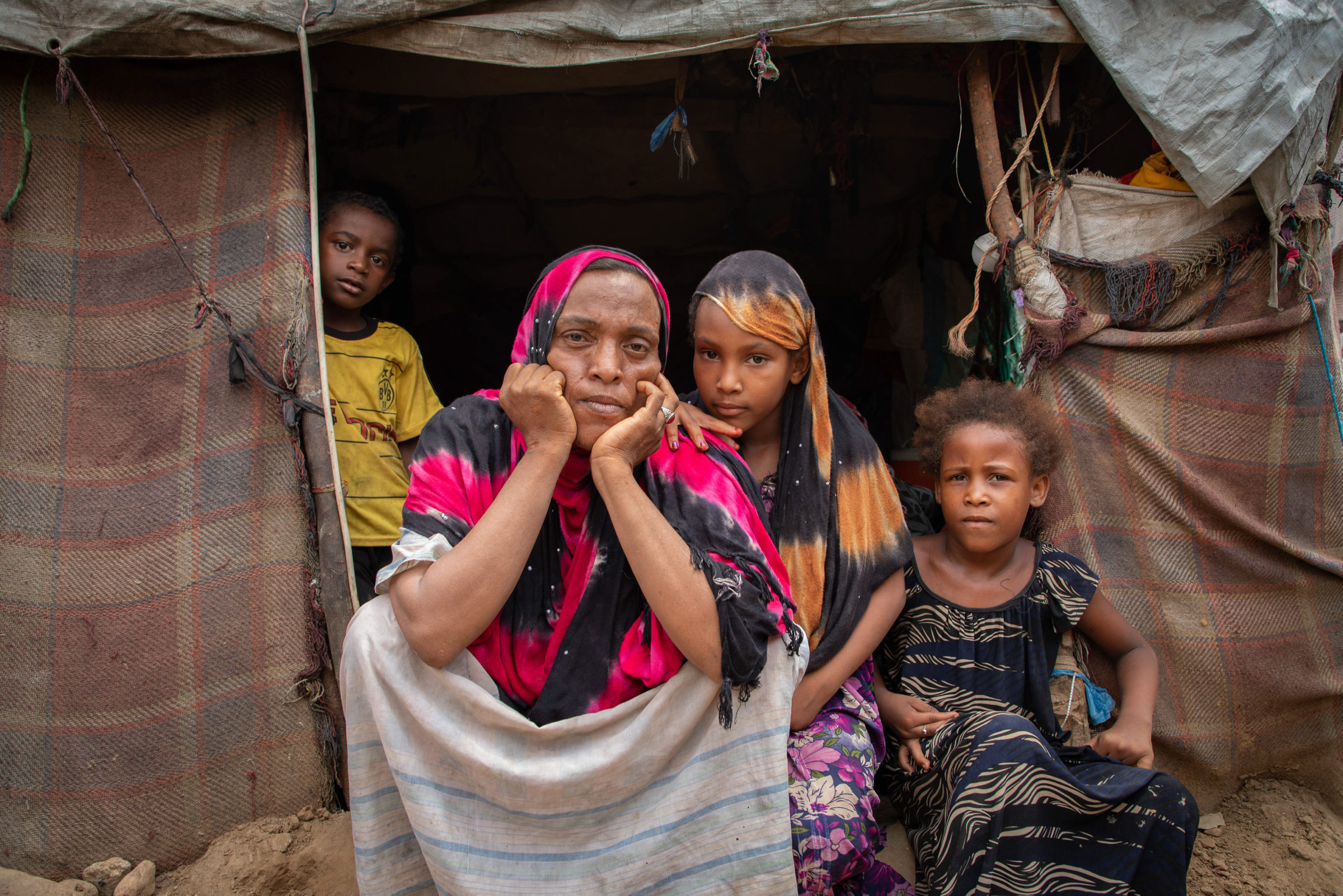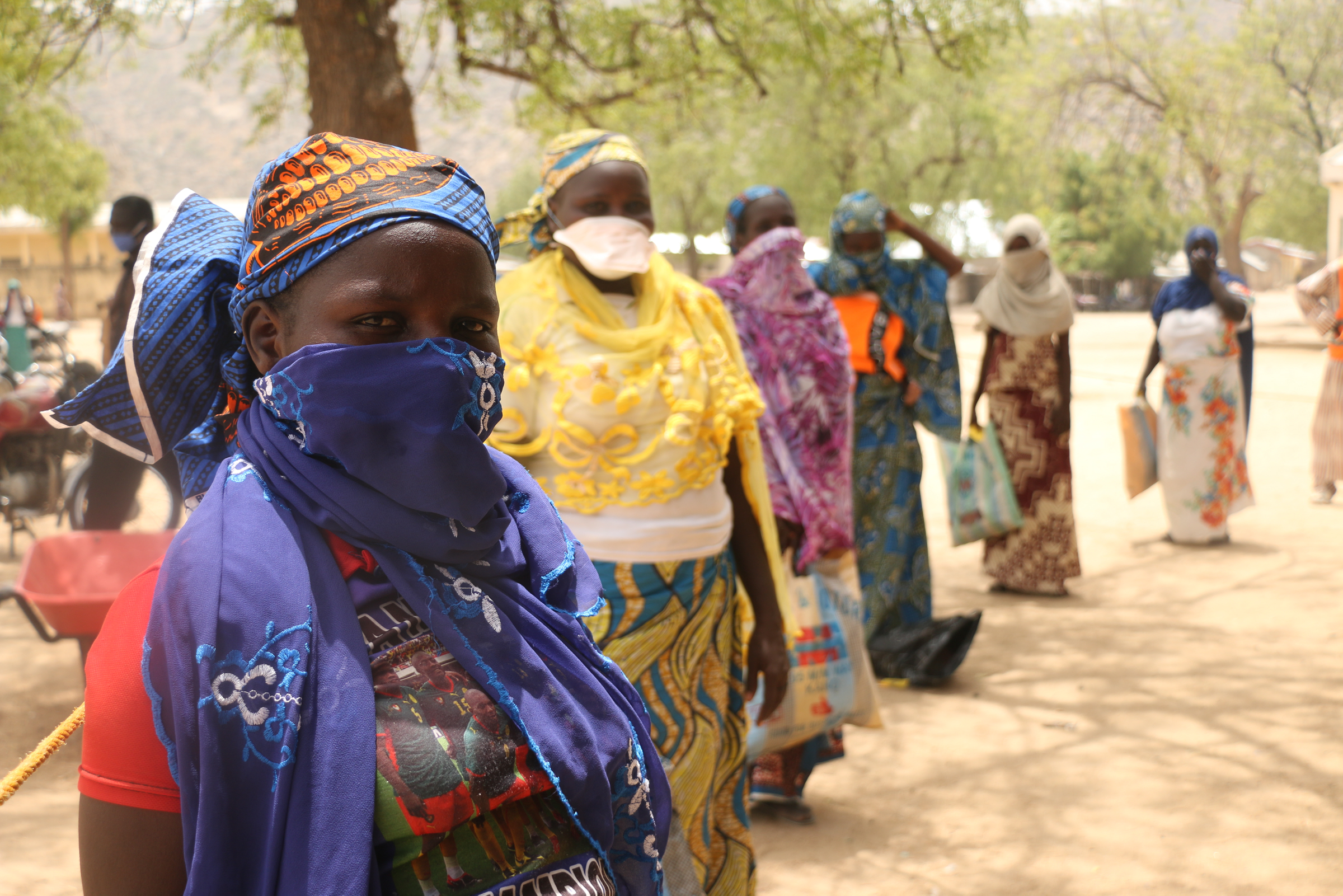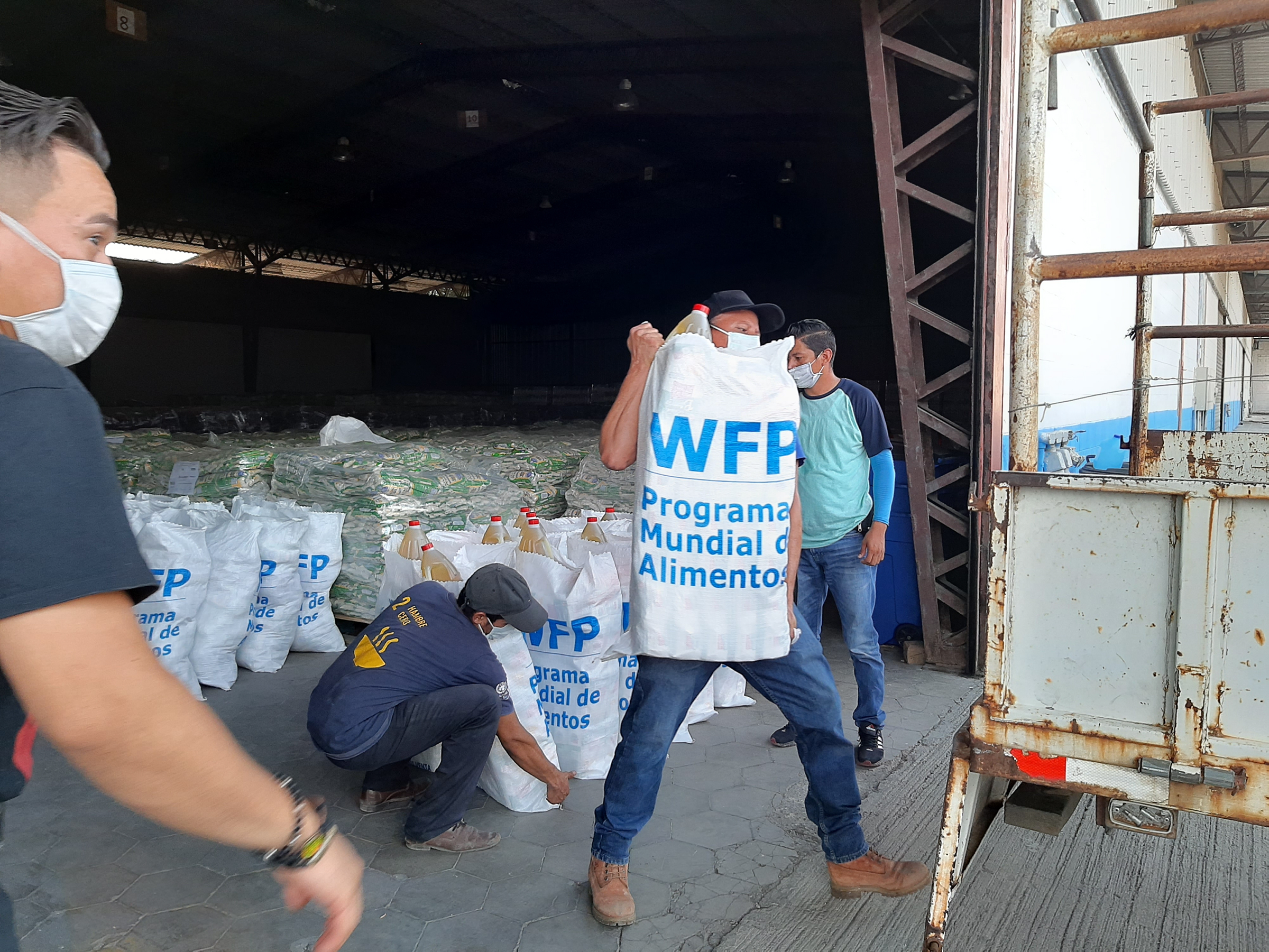An Unprecedented Response for an Unprecedented Time of Need

As the global coronavirus crisis extends into summer, it seems our worst fears are being realized as the virus shifts its focus to low-income countries where people will suffer the worst.
At World Food Program USA, we are particularly worried about the most fragile of these nations, where people are already suffering from violence, hunger and disease. This pandemic is exasperating an already challenging environment – making the poor poorer and the hungry hungrier. It is multiplying misery by preying on the weak and vulnerable, pushing millions out of work and into hunger, disrupting vital supply chains and threatening the very fabric of society. Before the pandemic, 149 million people suffered from severe hunger – but as COVID-19 spreads, that number is set to increase to 270 million by the end of this year.

A family at an internally displaced people’s camp in Yemen, home to the world’s worst humanitarian crises even before COVID-19.
We are facing a time of unprecedented need – so to meet it, the United Nations World Food Programme is undertaking an unprecedented response. We are currently scaling up to reach 138 million of the world’s most vulnerable people with lifesaving relief – that is nearly 30 million more than the previous record we reached in 2019.
Rising to meet this surmounting need will be challenging – but during a catastrophe like this, ensuring people have enough to eat is critical for more than one reason. Providing food will prevent widespread hunger, and it is also the best vaccine we have against the further chaos this pandemic could cause. Without it, we could see a rise in social unrest and migration, deepening conflict and malnutrition. History has taught us that access to food is the glue that holds societies together – and as the world fights to overcome coronavirus, collective strength is essential.

With COVID-19 keeping children out of school, WFP is providing families with take-home rations to make up for missing meals. Here, women line up to receive their food.
It is easy to get overwhelmed while considering the scale of this crisis – I know I do, when I picture the families who are struggling. I have seen the face of starvation and it is heartbreaking. I met a mom and her child after they walked for days with nothing to eat and finally arrived at a refugee camp. I will never forget how the food they got from the U.N. World Food Programme brought them back to life. I know, because I saw it for myself: we have the power to save lives.
And that is why I am encouraged by the work the U.N. World Food Programme is doing on the ground in the face of COVID-19. As the world’s largest humanitarian organization working in nearly 80 countries worldwide, we are on the frontlines of hunger – uniquely positioned to reach the most people in urgent need. In times of emergency, the U.N. World Food Programme will do whatever it takes to save as many lives as possible – and right now, what it takes is implementing the biggest humanitarian response in history.

In El Salvador, WFP staff haul bags of food to distribute and bring relief to families affected by this crisis.
But we cannot do this alone – to fight this uphill battle against the impacts of COVID-19, we need your help. The U.N. World Food Programme needs more support to undertake the massive response necessary to save lives. This virus has pushed millions to the edge of hunger, but there is still time to keep them from falling off. Join us today. Together, we can be the difference between life and death in this time of unconscionable need.




